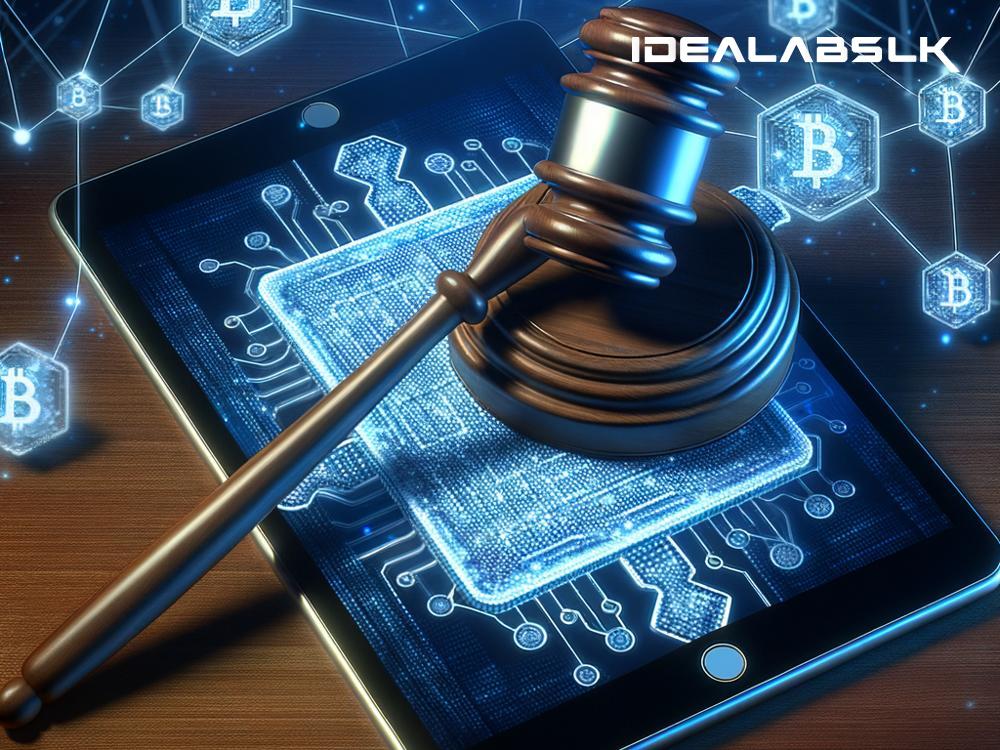Unveiling the Future: How Blockchain is Revolutionizing Real Estate Legal Agreements
The world of real estate, known for its traditional methods and paper-laden processes, is witnessing a revolution. This change is spearheaded by blockchain technology, a term that might seem complex at first glance but has the power to redefine the essence of real estate transactions and legal agreements. In simple words, blockchain is like a digital ledger that securely records transactions across many computers so that the record cannot be altered retroactively. This innovative technology is pioneering a shift towards more transparent, efficient, and secure real estate transactions.
The Traditional Real Estate Scene
Traditionally, buying or selling property involves numerous steps - from due diligence, inspections, contract drafting, and notarization, to title searches and the final transfer of ownership. This process can be exhaustive, time-consuming, and prone to human error. Moreover, the involvement of intermediaries like agents, lawyers, and banks adds complexity and costs.
Enter Blockchain
Blockchain introduces a radically different approach to handling legal agreements and transactions in real estate. Here's how it’s changing the game:
Decentralization and Transparency
Blockchain operates on a decentralized network, meaning it doesn’t have a central point of control. Every transaction made on the blockchain is visible to all parties involved, ensuring a level of transparency traditional methods can't match. This visibility can dramatically reduce the chances of fraud and disputes over property ownership and history.
Smart Contracts
One of the most groundbreaking applications of blockchain in real estate is the development of smart contracts. These are self-executing contracts with the terms of the agreement directly written into code. Essentially, smart contracts automate and enforce the contract's execution, eliminating the need for intermediaries. Once predefined conditions are met, such as payment confirmation, the digital ownership of the property can be transferred automatically, making the process faster and reducing the potential for human error or manipulation.
Streamlined Processes
Blockchain can significantly streamline the real estate transaction process. For instance, it can consolidate the multiple steps of buying a home into a single, more manageable process. Property records, listings, and legal documents can all be stored on the blockchain, providing a single source of truth. This not only speeds up transactions but also slashes the costs associated with documentation and verification.
Enhanced Security
The cryptographic foundation of blockchain ensures a high level of security for real estate transactions. Once information is entered into the blockchain, it is nearly impossible to alter, creating an immutable record of ownership and transactions. This decreases the risks of fraud, such as title forgery or double-selling properties.
Global Reach
Blockchain technology knows no borders. It can facilitate international real estate transactions by simplifying the process, reducing the need for currency exchange, and ensuring compliance with local and global regulations. This opens up the global real estate market, making it more accessible to foreign investors.
Real-Life Impact and Challenges
Blockchain in real estate is not just a theoretical concept; it’s being put into practice. Startups and established companies alike are exploring blockchain for everything from property listings and payments to land registry and title transfers. Countries like Sweden have begun testing the use of blockchain for land registries.
However, the widespread adoption of blockchain in real estate faces challenges. Regulatory hurdles, the need for widespread digital literacy, standardization of processes, and concerns about privacy and data control are significant barriers. Moreover, transitioning from traditional systems to blockchain-based systems requires significant investment and coordination among all stakeholders.
The Road Ahead
The potential of blockchain to revolutionize real estate legal agreements is immense, promising a future where transactions are faster, more secure, and less costly. As the technology matures and stakeholders become more familiar with its capabilities, we can expect blockchain to become a standard in real estate transactions. However, the journey will require addressing the practical challenges of implementation and regulation.
Blockchain is not just changing real estate; it's setting the stage for a future where technology empowers trust and transparency in transactions like never before. Its transformative power lies in its ability to simplify the complex, safeguard against fraud, and open up new possibilities for global real estate investment and ownership.
In essence, blockchain is tearing down the walls of the traditional real estate market, paving the way for a more open, efficient, and secure ecosystem. The future of real estate legal agreements is digital, decentralized, and on the blockchain. As the adage goes, the best time to plant a tree was 20 years ago, and the second best time is now. Similarly, for blockchain and real estate, the future is ripe with opportunity, and the time to embrace this digital revolution is now.

